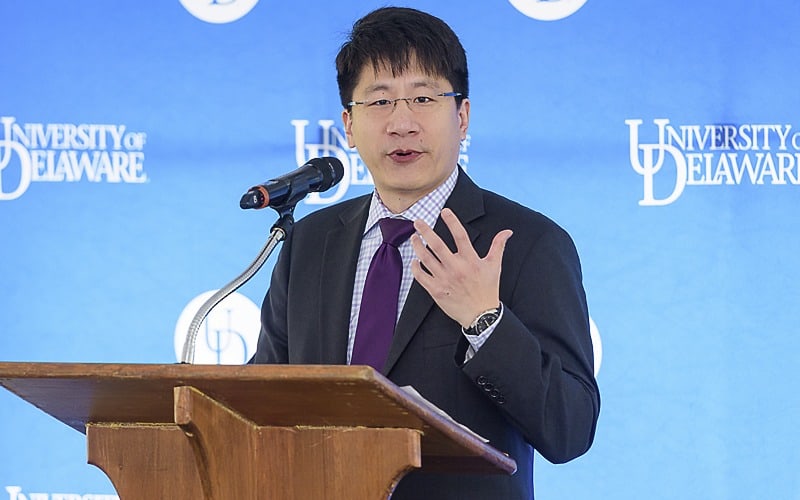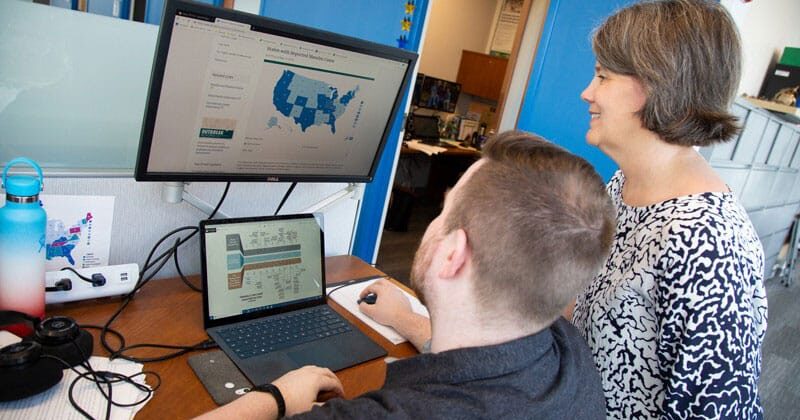 Research & Discovery
Research & Discovery
A Blog Devoted to UD Innovation, Excellence and Scholarship
Research & Discovery
A Blog Devoted to UD Innovation, Excellence and Scholarship
Building the future with biopharmaceuticals
ABOVE: Kelvin Lee is the Gore Professor of Chemical Engineer, director of the Chemical and Biomolecular Engineering Institute, and director of NIIMBL. | Photo by Evan Krape
Groundbreaking shows strength of UD commitment to NIIMBL partnership, research
It seemed like a pipe dream to Kelvin Lee, Gore Professor of Chemical and Biomolecular Engineering – this idea that the University of Delaware might find room for a place where innovation in biopharmaceuticals could happen. He wished for 60,000 square feet of space. But how could that work?
UD President Dennis Assanis had even bigger ideas.
“Why settle for 60,000 square feet,” Lee recalled Assanis saying, “when the University could build 200,000 square feet at the STAR Campus?”
Monday, the dream Lee once thought too expensive and too ambitious was taking shape in striking fashion, as 14 symbolic shovels plunged into a symbolic mound of dirt on UD’s Science Technology and Advanced Research (STAR) Campus, the ceremonial start of construction on a six-story, $156 million Biopharmaceutical Innovation Building.
It will be a gateway, University officials hope, to a major role for Delaware in the emerging biopharmaceutical sector, where scientists and innovators will tackle some of the world’s most vexing diseases – Alzheimer’s, Parkinson’s, diabetes, cancer, to name a few – and help to train a world-class workforce.
There, Lee will direct the extensive national initiative known as NIIMBL – the National Institute for Innovation in Manufacturing Biopharmaceuticals, with $70 million in federal funding from the National Institute for Standards and Technology (NIST) and millions more in support from UD and about 150 other partners in government, industry and academic sectors.
The Delaware Biotechnology Institute will relocate faculty, staff and three facilities to the new building – bio-imaging, bio-informatics and sequencing – and related UD-led life science research and technology programs will be housed there, too. Opening day is projected for January 2020.





